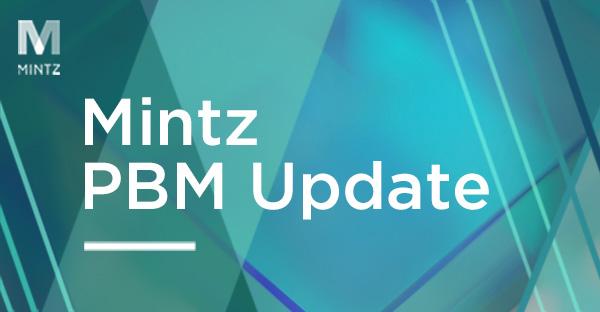Understanding California SB-41: What PBMs Operating in California Need to Know
On October 11, 2025, California Governor Gavin Newsom signed Senate Bill 41 (SB-41) into law, introducing a comprehensive set of new regulations for pharmacy benefit managers (PBMs) operating in the state. As part of the broader California Prescription Drug Affordability legislative package, SB-41 reflects the state’s efforts to combat high drug costs, standardize PBM pricing practices, enhance transparency, and address concerns around access to pharmacies. Among other things, SB-41 imposes fiduciary obligations on PBMs, establishes fee structure requirements and limitations, prohibits the use of spread pricing and steering to PBM-affiliated pharmacies, and requires 100% passthrough of rebates from PBMs, their affiliates, and contracted rebate group purchasing organizations (GPOs) to health plan customers.
Below, we summarize the key provisions of SB-41 that PBMs and health plans operating in California should be aware of and provide some anticipated implications of the law’s enactment.
Key Provisions from California’s New PBM Law
- Governance, Oversight, and Compliance Framework
- PBM Fiduciary Obligations. SB-41 imposes a fiduciary duty on PBMs serving self-insured employer plans and health plan clients. Under these provisions, a PBM must “be fair and truthful” toward its plan clients and is required to act in their “best interests, to avoid conflicts of interest, and to perform its duties with care, skill, prudence, and diligence.”
- PBM Licensure Requirement. Any contract between a PBM and a health plan issued, amended, or renewed on or after January 1, 2027, must require that the PBM is licensed and in good standing with the Department of Managed Health Care (DMHC).
- PBM Oversight. DMHC is authorized to conduct “periodic routine and nonroutine surveys” of PBMs and their “fiscal and administrative affairs.”
- PBM Audited and Unaudited Financials Submission Requirement. PBMs are required to submit audited financial statements on an annual basis and unaudited financial statements on a quarterly basis to DMHC. DMHC has authority to extend deadlines, request reports outside of the financial statements, and establish rules and regulations on the form and process for submitting such documents. Any documentation submitted pursuant to this requirement is confidential and protected from public disclosure.
- Transparency, Pricing, and Rebate Requirements
- PBM Transparency Reporting Obligations. On a quarterly basis and upon request of their health plan clients, PBMs must disclose detailed drug pricing, rebate, administrative fee, drug utilization, and pharmacy financial arrangement information.
- Prohibition on Spread Pricing. Beginning January 1, 2026, spread pricing is banned and must be prohibited in all new contracts. Existing contracts must prohibit spread pricing at the next renewal or amendment.
- 100% Pass-Through of Rebates. Under SB-41, PBMs (and their GPOs and affiliates) must direct 100% of rebates received to applicable payers or programs. SB-41 defines a GPO broadly to capture any “third party or affiliated person, including an out-of-state or international organization, employed by, contracted with, affiliated with, under common ownership or control by, or otherwise utilized by an entity that provides pharmacy benefit management services or by a pharmacy benefit manager to negotiate, obtain, or otherwise procure rebates from drug manufacturers or wholesalers.”
- PBM Compensation Limited to a Flat FMV Management Fee. PBMs are prohibited from retaining rebates or collecting income in any way other than as flat, defined, dollar-amount service fees that are expressly disclosed to their clients and do not exceed fair market value. These service fees may not be based on or contingent upon (a) the price of prescription drugs (e.g., wholesale acquisition cost (WAC), average wholesale price (AWP)), (b) the savings or rebates realized or generated by the PBM or its affiliated entities, (c) the premiums, deductibles, or other cost sharing amounts charged or realized by the PBM or its affiliated entities, (d) coverage or formulary placement decisions or the volume or value of referrals, or (e) any other methodology prohibited by DMHC.
- SB-41 does allow PBMs to receive performance bonus payments from clients, provided that such performance bonus payments are not tied to: (a) the acquisition or ingredient cost of a drug, (b) the amount of savings, rebates, or other fees charged, realized, collected, or generated by the PBM or its affiliated entities, or (c) the amount of premiums, deductibles, or other cost sharing or fees charged, realized, or collected by the PBM or its affiliated entities.
- Pharmacy Relationships
- Prohibitions and Limitations on Affiliated Pharmacy Relationships. SB-41 includes relatively standard anti-steering and other prohibitions that prevent PBMs from discriminating against non-affiliated pharmacies to steer patients to their affiliated pharmacies.
- Prohibited behavior includes actions such as (1) applying terms or conditions to a non-affiliated pharmacy’s participation in a network that are not equally applicable to affiliated pharmacies, (2) reimbursing a non-affiliated pharmacy at rates less than those paid to affiliated pharmacies, and (3) requiring members to use only affiliated pharmacies when there are non-affiliated pharmacies included in a network. SB-41 also prohibits PBMs from restricting the rights of non-affiliated pharmacies to offer mail-order and courier delivery services to members (as such actions can be used to steer patients to affiliated mail-order pharmacies).
- Pharmacy Pricing Protections. Under SB-41, PBMs are prohibited from reducing payments (directly or indirectly through their health plan clients) for pharmacist services under a reconciliation process to achieve certain effective rates of reimbursement (i.e., brand or generic effective rates). Additionally, subject to limited exceptions, such as fraud, PBMs are prohibited from retroactively denying or reducing a claim following adjudication or reversing and resubmitting a claim without proper notice and just cause to first reconcile the applicable claim(s) with the pharmacy.
- Prohibition on Transmission Fees. PBMs are prohibited from charging pharmacies transmission fees to process claims electronically.
- Prohibitions and Limitations on Affiliated Pharmacy Relationships. SB-41 includes relatively standard anti-steering and other prohibitions that prevent PBMs from discriminating against non-affiliated pharmacies to steer patients to their affiliated pharmacies.
- Additional Drug Cost Safeguards
- Prohibition on Exclusive Manufacturer Arrangements. PBMs are prohibited from entering into exclusive arrangements with manufacturers (whether express or implicit) for their products, unless the PBM can demonstrate the extent to which the exclusive arrangement results in the lowest cost to the health plan and the lowest cost sharing for members.
- Patient Cost Sharing Protections (applicable to health plans). Under SB-41, health plans are prohibited from charging a member’s cost share (inclusive of deductibles and coinsurance) at any amount that exceeds the actual rate paid by the health plan for a prescription drug. Further, in the event a health plan’s contract with its PBM includes disclosure of the net price paid by the PBM (or its GPO) for a prescription drug, the health plan is prohibited from charging a member’s cost share at any amount that exceeds the disclosed net price.
- Enforcement and Exemptions
- Penalties for Violations. Violations of most provisions of the law carry a civil penalty of not less than $1,000 and not more than $7,500 per violation. SB-41 also amends the Insurance Code so that a complaint made by a member against a PBM may be considered by DMHC to also be a complaint against the health insurer.
- Taft-Hartley Plan Exemption. The provisions noted above generally do not apply to PBMs providing services to collectively bargained Taft-Hartley self-insured prescription drug plans.
Implications for PBMs Operating in California
SB-41 introduces new contractual and operational requirements that will require most PBMs active in the state to adjust their existing financial and contractual relationships. The law contains many requirements similar to existing PBM regulation in other states, however, SB-41’s requirements related to PBM compensation are novel at the state level. As with other existing state PBM laws, SB-41 will require PBMs and plans to review and adjust operations and financial arrangements in the state to comply with the law.
The Mintz team is continuing to analyze SB-41’s practical impact, including how DMHC may implement its expanded oversight authority, and ways PBMs and health plans can strategize to align their operations in compliance with SB-41’s new requirements.

PBM Policy and Legislative Update — Spring 2025
June 10, 2025| Blog

Federal Court Blocks Arkansas PBM Ownership Law, Citing Constitutional Violations
August 6, 2025| Blog
Authors
Theresa C. Carnegie
Member
Hassan Shaikh
Associate



